
According to the Department of Agriculture, Land Reform and Rural Development (DALRRD), it’s important to decide when and by what means to wean beef calves, because this influences the weaning mass of calves as well as the condition of the cows, and indirectly their conception rates.
Circumstances on the farm determine the method of weaning. Calves are ideally weaned when seven to eight months old. But the right time to wean a calf depends on the condition of the cow and not the age of the calf.
The DALRRD suggests the following:
Wean calves before the condition score of the cow falls below 2,5 if adequate winter feed is available, and the cows maintain their condition. The calves should preferably be weaned before the cow’s condition score falls below 3.
“During years of drought and poor feed supply, calves should be weaned early (at about six months) to allow the cow to recover before the onset of winter,” says the DALRRD.
It’s important that the cow should recover and the secretory tissue be restored before the next calf is born.
In the eastern parts of South Africa, calves born during spring can be weaned early in May at the age of about seven to eight months, says the DALRRD.
In the more western parts, calves can be weaned late in May or early June at the age of about seven to eight months as the breeding season tends to be later in these areas.
Denne historien er fra October 13, 2023-utgaven av Farmer's Weekly.
Start din 7-dagers gratis prøveperiode på Magzter GOLD for å få tilgang til tusenvis av utvalgte premiumhistorier og 9000+ magasiner og aviser.
Allerede abonnent ? Logg på
Denne historien er fra October 13, 2023-utgaven av Farmer's Weekly.
Start din 7-dagers gratis prøveperiode på Magzter GOLD for å få tilgang til tusenvis av utvalgte premiumhistorier og 9000+ magasiner og aviser.
Allerede abonnent? Logg på

When short-term rentals make sense
Bianca Smit, national operations manager at CFAO Equipment SA, outlines factors to consider when choosing a rental equipment partner.
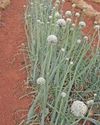
The timing of onion sowing is critical
Each onion variety has a different resistance to bolting, thus growers need experience and knowledge to guide them,
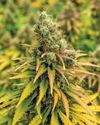
Understanding cannabis and hemp regulations in South Africa
South Africa's cannabis and hemp regulations remain a topic of debate and uncertainty, particularly when it comes to commercial use and small-scale production. Cannabis experts Shaad Vayej and Trenton Birch spoke to Octavia Avesca Spandiel about the challenges that small-scale cannabis and hemp farmers face.

European seed's influence on the US cannabis market
The expansion of European cannabis seed onto the US market is not just about economic growth; it’s also about enriching the landscape of US cannabis with diversity, innovation and education,
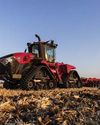
'It's important to get the right tool for the job'
The adoption of technology is crucial to sustaining efficiency gains and beating the cost-price squeeze in the agriculture sector.
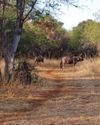
A brilliant bushveld break between Bela-Bela and Modimolle
The distinctive touch, diligence, and 24/7 customer care are just a few of the reasons you should visit four-star Tourism Council-graded Pumula Game Farm,

John Deere: elevating performance and efficiency in modern farming
In the fast-paced world of farming, the right tools make all the difference.

The naval disaster Winston Churchill tried to hide
Three British warships were sunk by German naval gunfire on a dark day early in World War II, but the heroes who fought back received only muted recognition, possibly to avoid bad publicity,
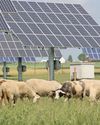
Breaking down the principles of regenerative farming
Jean Hugo, a post-graduate student at the Tshwane University of Technology, and Leon Hugo, author on environmental matters and former professor of geography at the University of Pretoria, write about the importance of regenerative agriculture for small-scale farmers, and the challenges related to making the shift.

Ectoparasite control: more tips for livestock farmers
To reduce the mayhem that uncontrolled ectoparasites can create for communal farmers, it’s best to adopt a holistic approach in conjunction with veterinary remedies,